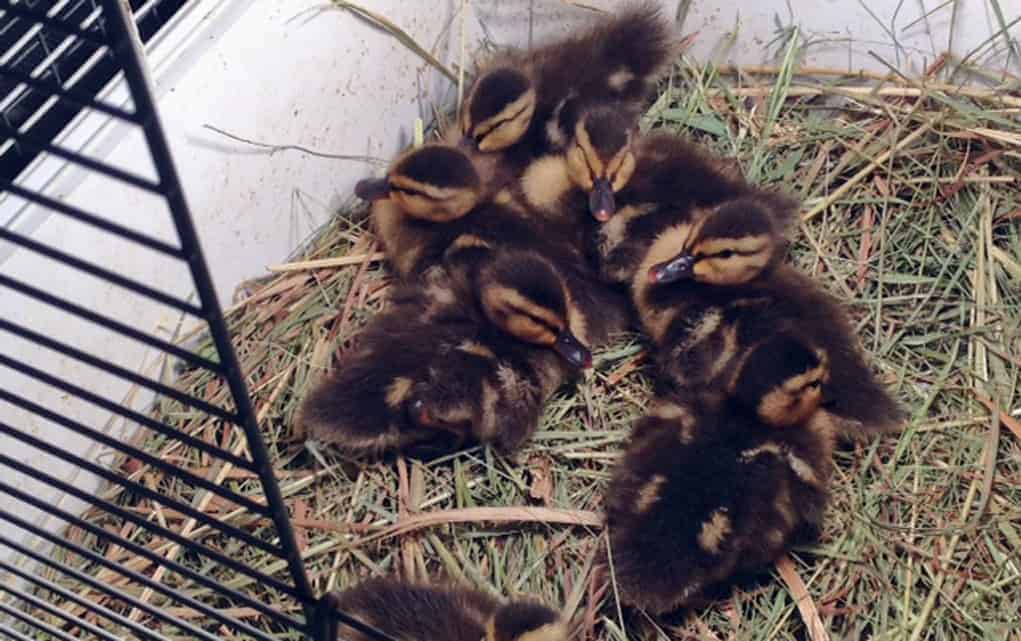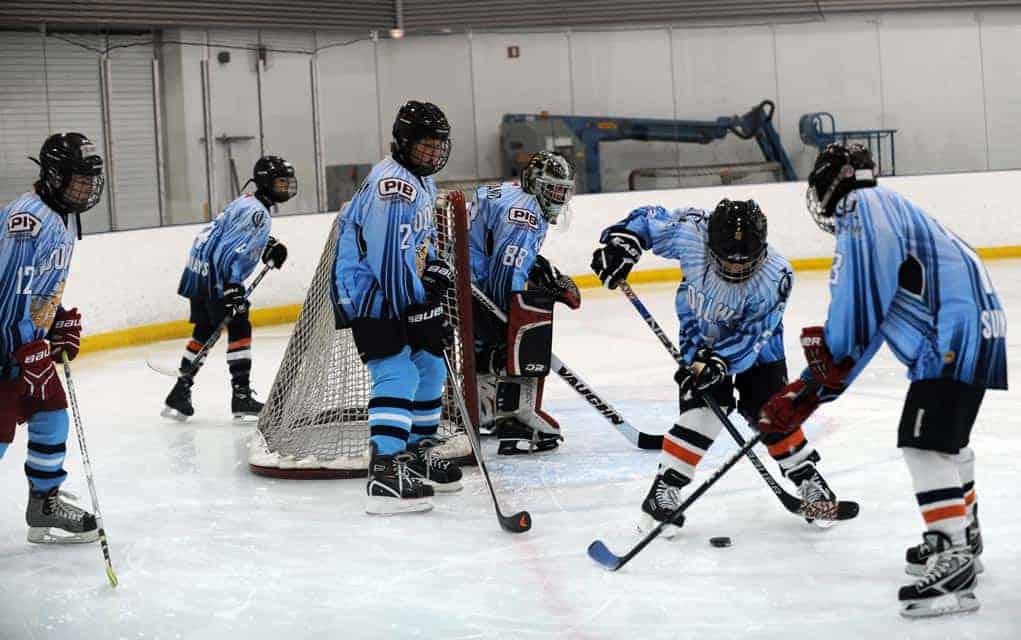Seven of Bolender Park’s fuzziest residents have taken a vacation to Jarvis.
Elmira resident Vivienne Delaney found the ducklings outside her home near Bolender Park after the mother duck and three other ducklings were hit by a car on July 27.
The surviving ducklings were sent to Wildlife Haven Waterloo, where Joy Huggins cares for a variety of animals as a licensed wildlife rehabilitator before their release back into their natural environment. She cares for mammals, as well as waterfowl and migratory birds.
Huggins took care of them for a few days before she sent them to another wildlife rehabilitator in Jarvis who has farmland and other ducklings.
“They come in, basically they’re really upset because they just want mom and of course mom’s not around. My job is to try to calm them down and keep them quiet and to get them to eat. When they get really frightened they don’t want to eat and all the brain is telling them is they want to get out of whatever I have them in and try to get to mom,” Huggins explained.
She says a group of 10 ducklings is a common number, noting seven survivors is good. When they first arrived she guesses they were between five and seven days old.
“Generally it’s touch and go with these guys. If you get one or two in and one doesn’t eat it’s really hard to get them to eat, but if you have a group and one decides it’s going to eat, then the rest see it, then it’s kind of like monkey see, monkey do,” she said.
They ended up eating and calming down. They’ll be released back into the wild when they’re ready. Typically they’re released on a body of water when they have a lot of their feathers but still can’t fly yet.
“They’re actually pretty easy. They’re just a little messy is all, cute and messy,” she says with a laugh.
You can only have wildlife in your possession for 24 hours before you have to give it to a licensed rehabilitator. She’s been licensed for eight years and receives no funding except donations.
“We never keep them, ever. It’s more like just raising them until they’re at the age when they can go off on their own,” she said.
Huggins also has a merganser duckling right now. A diving duck, it doesn’t mix with mallards. That duck is going to be heading to a nature centre for education. He can’t be released because he’s so imprinted. Imprinting is a crucial part of an animal’s life at the early stage when it develops attachments.
As for the seven ducklings, she says this is late in the year for them to be born. May is her busiest month, with calls coming in hourly about injured animals.
Once a group of ducklings are hatched they all stand up and follow the mother duck for the nearest body of water. Often the mother duck will walk over a manhole without a problem, but it’s not the same for the baby ducks.
“Of course she can walk over but the babies go bomp, bomp, bomp, they fall in. In fact in Kitchener last year somebody who worked for Kitchener, he said they had people hired on in the month of May where they specifically go around and have time just to get these ducklings out of the sewers, that’s how often it happens,” she said.
Right now she’s taking care of a porcupine, a groundhog, some squirrels, the merganser duckling, five crows, doves, barn swallows, cedar waxwings, cardinals, a bunny and six chipmunks.
She began wildlife rehabilitation when her daughter was young and they saw a baby squirrel with a broken leg at Waterloo Park.
“There’s not enough people doing it and there’s too many animals that aren’t getting help because of that,” she said.
She wants to help educate people about when it’s safe to intervene with injured wildlife.
“Baby birds can’t fly out of the nest. When you look at the bird you think it’s got all its feathers, it should fly, but it can’t. So a lot of people will take that baby, take it home and think there’s something wrong with it, they’re trying to get it help, and in fact they’re taking it away from the mom,” she said.
“Or people won’t want to pick up a baby and try to help it because they’re afraid that if they touch it mom won’t then take it back, well that’s not true either,” she said of a common misconception.
She’s all full right now but she says she’s glad to help people who rescue injured wildlife find another rehabilitator.
For more information about what to do in the case of a wildlife emergency or to donate, visit www.wildlifehavenwaterloo.ca or look up Wildlife Haven Waterloo on Facebook.









